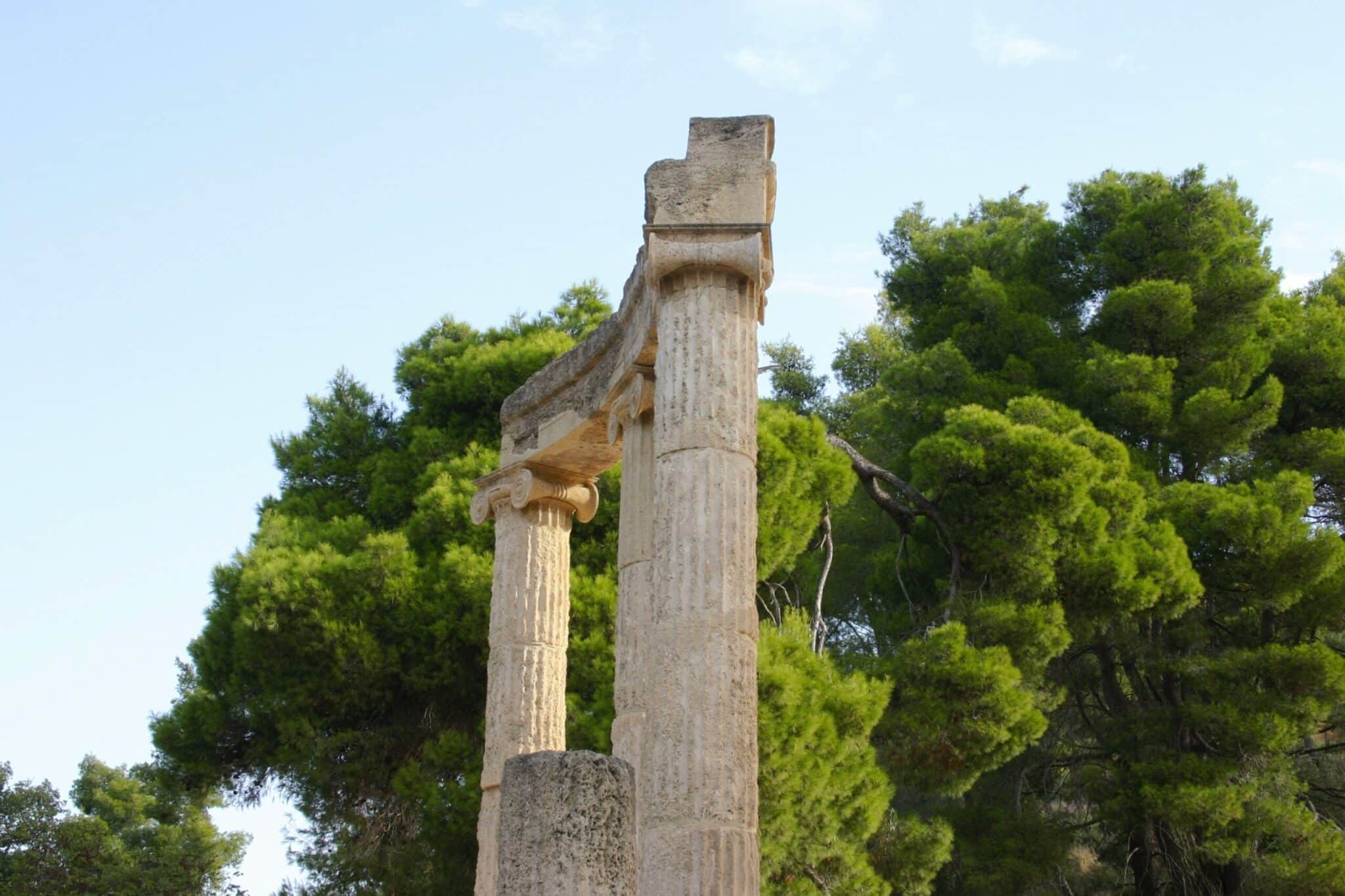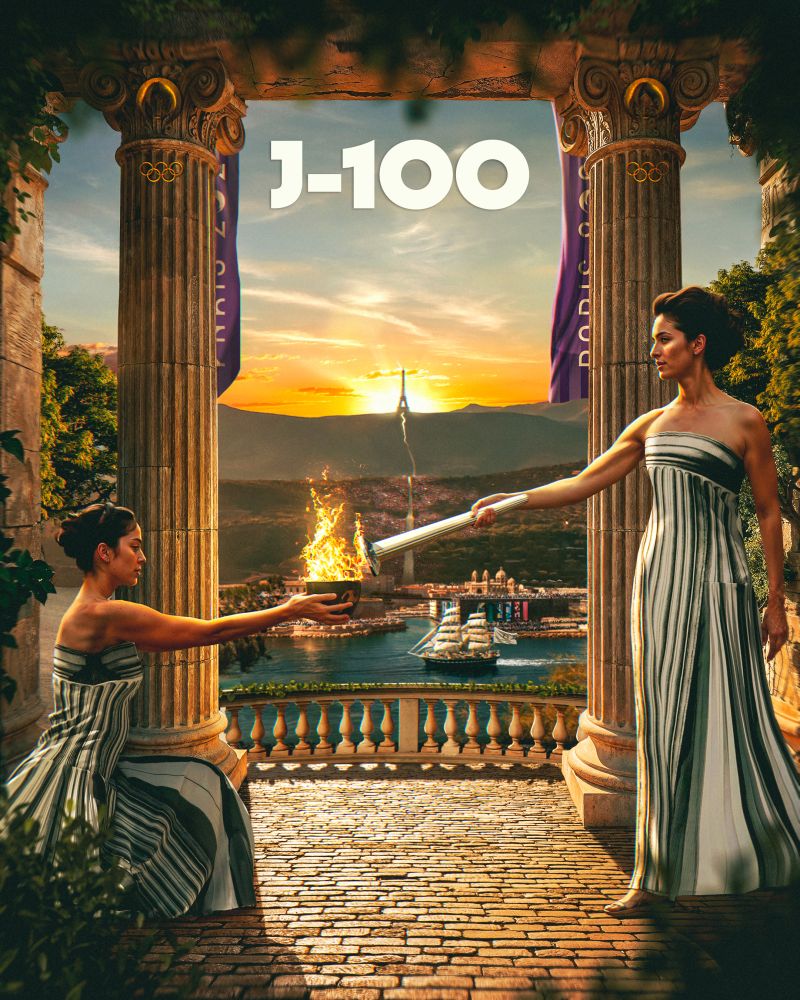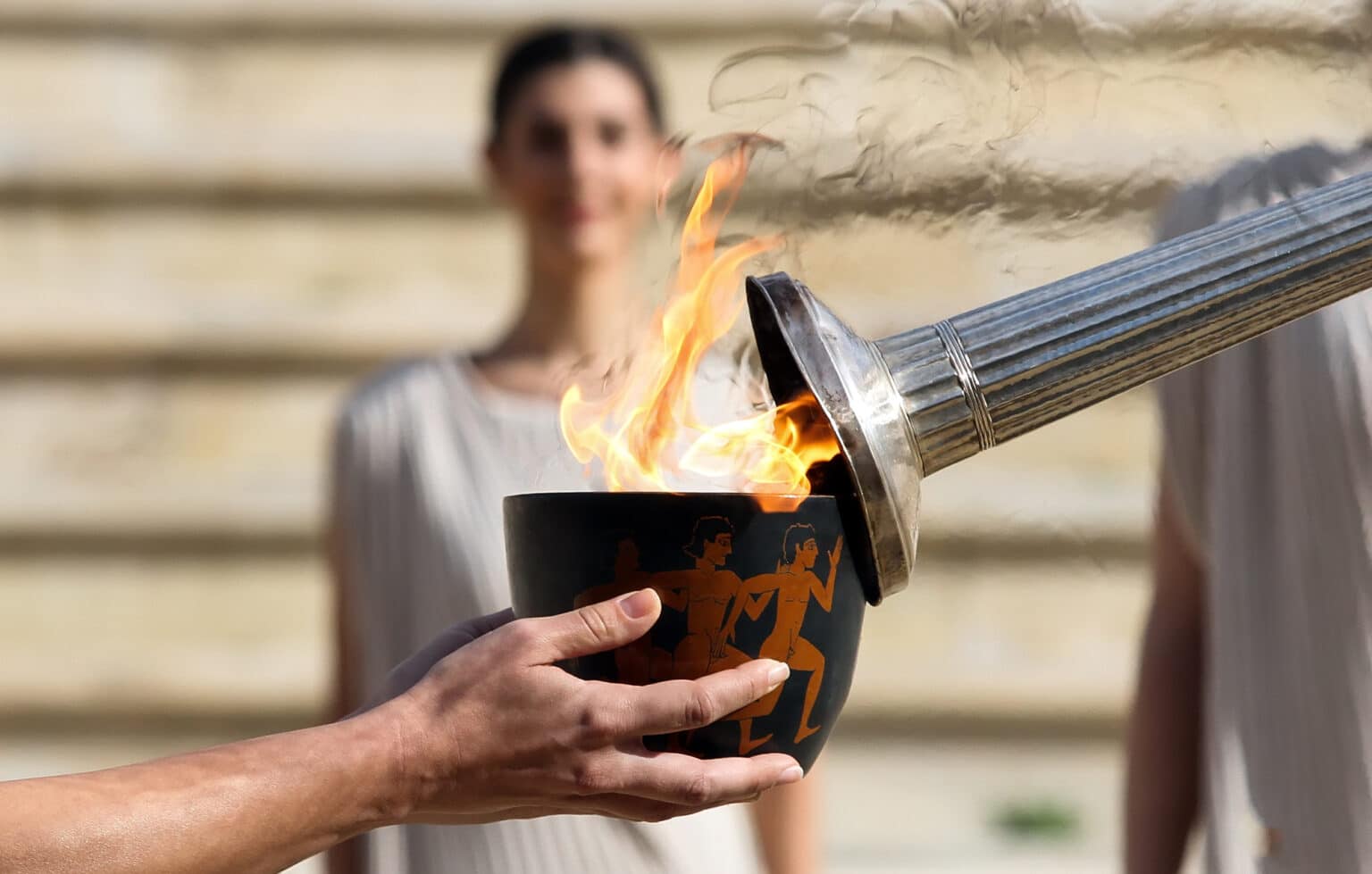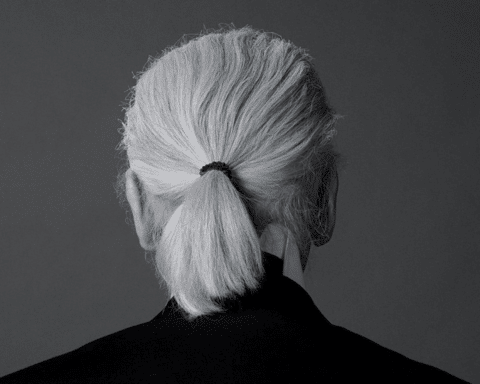The Olympic flame was lit in Olympia, the birthplace of the ancient Games, on Tuesday, April 15, 2024, 101 days before the 33rd Olympiad kicks off in Paris. This marks the start of a 5,000-kilometer journey for the torch before it reaches Marseille on May 8, followed by French Polynesia and the City of Light.
“Carrier of hopes and dreams for a great many athletes”, the Olympic flame has begun its fabulous odyssey, which will take it to Paris on July 27, the date of the opening ceremony.
In accordance with ancient Greek rituals, and especially those of the 1936 Olympic Games, the flame was lit and began its 5,000 km relay from the sanctuary of Hera in Olympia.
This marked a return to normal after the COVID had prevented the ceremony from taking place at the 2020 Summer Olympics in Tokyo and the 2021 Winter Olympics in Beijing.
Standing beside the sacred olive trees that once lined the ancient stadium, this event, a symbol of universal peace, is all the more significant now that war is raging in Ukraine, in the regions of Upper Karabagh (Armenia) and North Kivu (Democratic Republic of Congo). And the risk of conflagration in the Middle East and Africa’s Great Lakes region has never been greater.
Under the auspices of Hera and Pierre de Coubertin
Some six hundred people flocked to Olympia on Tuesday April 17 at 11am Paris time. As is the case every time the flame is lit, many tourists of all nationalities came to witness this ritual, which seems to come from the depths of time. A unique, suspended moment lulled by the incantations of the High Priestess of Hera, Greek goddess of the hearth and wife of Zeus, the “God of Gods”.
The cloudy, capricious skies of the day forced the organizers to make a slight departure from tradition. As the “Skaphia” parabolic mirror was inoperative, a spare flame had to be used to ignite the Olympic torch.

However, 3000 years ago, this ritual did not exist. In the 8th century B.C., the Olympic Games consisted of 5 days of festivities based on the most important sporting disciplines of the day, such as running, jumping, wrestling, boxing and pancrastics, throwing and chariot racing. Olympia, not yet a city in its own right, welcomed no fewer than 40,000 people every four years. This great competition, whose fame extended beyond the Peloponnese region, was dedicated to Zeus and therefore took place in Olympia, within his sanctuary. The games also served as aunit for measuring time, with four-year cycles called Olympiads.
This tradition of lighting the torch and passing the baton actually dates back to the much-maligned 1936 Berlin Olympic Games, under the Nazi regime and immortalized by director and sympathizer Leni Riefenstahl in her productions “Gods of the Stadium” and “Olympia”. It wasn’t until the Helsinki Olympic Games in 1952 that this solemn ceremony became official.
But above all, this ceremony owes a great deal to the father of the modern Olympic Games: Pierre de Coubertin. A great fan of boxing, fencing, horse-riding and rowing, the Baron was convinced that to make sport popular, it first had to be internationalized. So he came up with the idea of recreating the ancient Olympic Games, which began in Olympia in 776 BC and were discontinued in 393 AD. The first modern Olympic Games were held in Athens in 1896.
Laure Manaudou, France’s first female torchbearer
The start of the torch relay is undoubtedly one of the highlights of this year’s ceremony, with commentary by Franco-Greek TV and radio host Nikos Aliagas.
The 26-year-old Greek Stéfanos Douskos, the reigning Olympic rowing champion who will be crowned champion in Beijing in 2021, was the first to pick up the honorary torch.

He then passed the baton to Olympic 400 m freestyle champion Laure Manaudou, 37. Crowned twenty years earlier in Athens with a haul of three medals, including gold, the swimmer was the first Frenchwoman to carry the Olympic flame.
A long journey
Ten days after the ritual lighting of the flame and an important Greek relay, the Olympic torch will be officially entrusted to the French organizing committee. For the President of the Paris 2024 Organizing Committee for the Olympic and Paralympic Games, Tony Estanguet, three-time European Champion, three-time World Champion and three-time Olympic Champion in slalom canoeing, “the flame has the power to reach the greatest number of people in all territories.”

On April 26, the diamond-shaped flame, designed by master artist Mathieu Lehanneur and produced in a batch of 2,000 by steel giant Arcelormittal, will set sail from the port of Piraeus, south of Athens, aboard the Belem, the emblematic three-masted ship of the French navy.
On May 8, the flame will dock in the old port of Marseille, France. The city of Marseille will thus have the honor of being the first French city to receive the Olympic torch.

A total of 10,000 randomly selected torchbearers will relay the Olympic flame along its 12,000 km route. The torchbearers will be visiting iconic French sites such as the Lascaux cave, Mont Saint Michel, the Loire castles, the Verdun memorial and the Normandy landing beaches.
In June, the torch will head for the French overseas departments: the West Indies, French Guiana and the Kourou Space Center, Reunion Island, French Polynesia and New Caledonia.
The torch will sleep on July 14 at Paris City Hall, before lighting the Olympic cauldron at the opening ceremony on July 27. The flame will then be visible to the general public in the Tuileries Gardens, in the immediate vicinity of the Louvre Museum.
Will there be an Olympic truce?
Speaking to the press, the first French torchbearer, Laure Manaudou, confessed to feeling “a great deal of pride”: “We want an event that brings us together”, declared the IOC President on this occasion.
In ancient tradition, the Olympic Games delivered a message of peace. Not that all conflict was forbidden, but the Olympians were open to the world: anyone who wanted to attend, whether Greek or barbarian (non-Greek, editor’s note), was welcome. In 2024, this truce takes on a literal meaning as the conflict in the Ukraine drags on. Under these conditions, it’s hard to know whether the Olympic truce will be respected, especially as the plan to invade Ukraine on February 24, 2022, had been meticulously prepared…during the previous Beijing Games.

Having lifted its “attack alert” at the end of January, France once again raised its vigipirate plan to the highest level, following the terrorist attack at Moscow’sCrocus City Hall on March 22, in which 143 people were killed. On April 15, French President Emmanuel Macron was reassuring about the security arrangements for the Olympic Games. Speaking from the newly renovated Grand Palais, which will host the fencing and taekwondo events, he asserted his determination to “show the most beautiful face of France.” While the capacity of the opening ceremony along the quays of the Seine has been lowered to 300,000 (from 600,000 initially), a Plan B and a Plan C are envisaged in the event of a major terrorist threat, at the Trocadero and the Stade de France respectively. Last March, the French Minister of the Interior, Gérald Darmanin, detailed the contingency plan: 30,000 law enforcement officers throughout the Games (more on the day of the opening ceremony) and 27,000 people from private security companies, as well as Sentinelle soldiers.
Holding the flame in one hand and an olive branch in the other, Laure Manaudou is keen to convey a message of hope at a time when the world is becoming increasingly polarized. “I had this feeling when I had the torch in my hand of having world peace in my hand for two minutes.” The former champion swimmer adds, “I tried to enjoy that moment and I said to myself I hope it will bring a little joy and humanity into this rather complicated world.”
Read also > 2024 OLYMPIC AND PARALYMPIC GAMES: THE OLYMPIC TORCH, OR THE STAR OF THE GAMES
Featured Photo: © Press



















